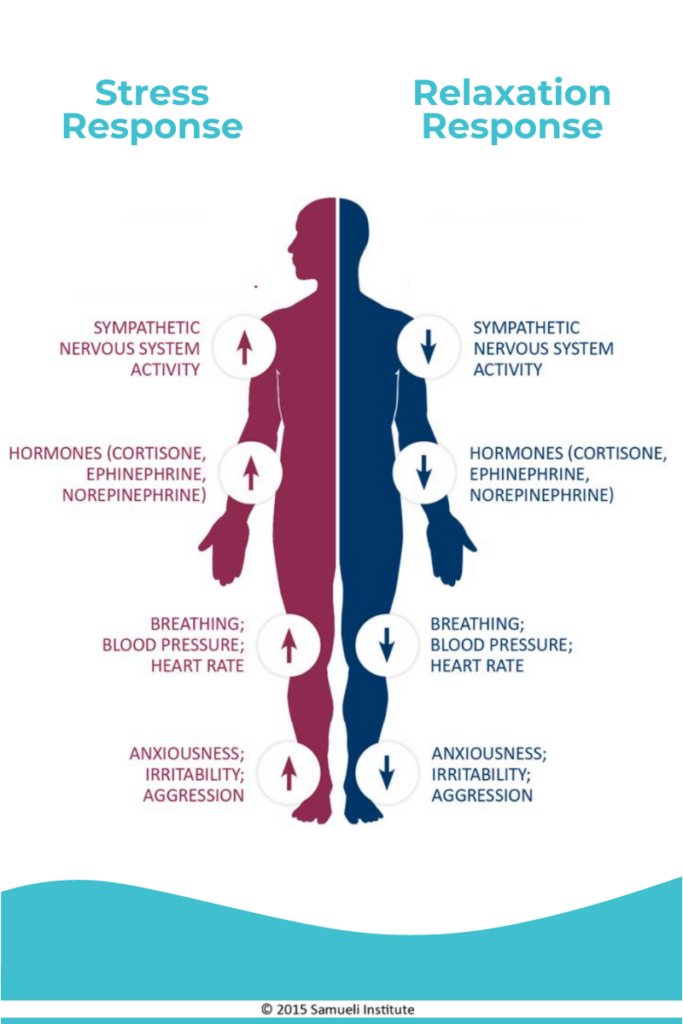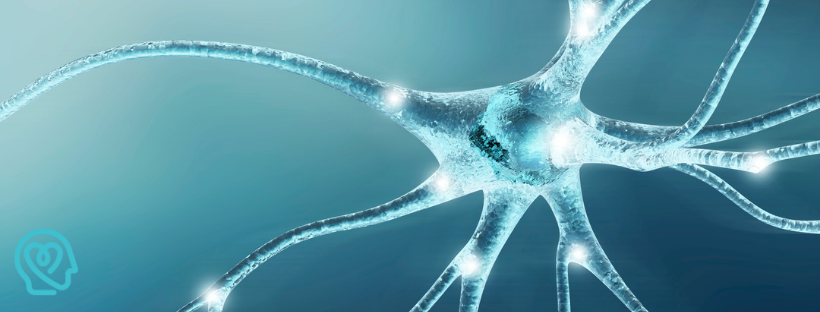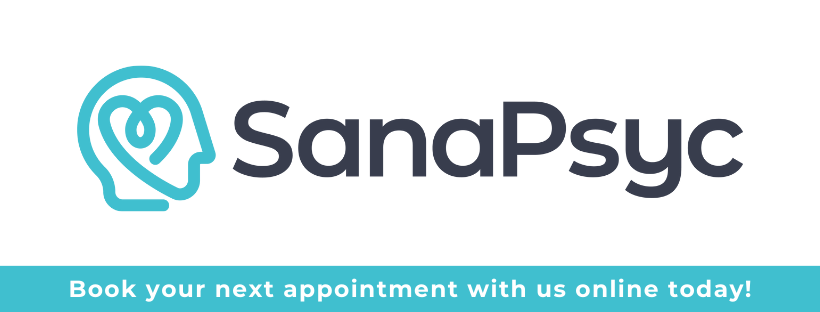People often have the idea that relaxation is a week-long vacation on a beach, a day at the spa, or having multiple hours to do an enjoyable activity. While these are all certainly examples of relaxing activities, they are also special and not available on a daily or regular basis (unfortunately!). Therefore, relaxation must be viewed in a realistic, not idealistic, way.
Looking at relaxation in this grandiose way can leave people feeling disillusioned and thinking that relaxation is unattainable to them, whether due to a lack of time, money, or other resources. Thankfully, relaxation is a skill, not a natural response, as discussed in our last blog post and is accessible to anyone at any time. In this article, we will be reviewing quick and easy ways to hack into our nervous system to promote a fundamental sense of relaxation which benefits our mental and physical health.
The Science of Relaxation
Lounging on a beach feels nice but what are we actually getting from that at a physiological level? To understand this, let’s go through a quick (and very basic) biology lesson:
Stress & Relaxation Response Systems
Within each of us are two parallel systems: The Stress Response and the Relaxation Response Systems. These are otherwise referred to as the sympathetic and para-sympathetic nervous systems.
The sympathetic nervous system is designed to prepare us to deal with short-term, acute threats and crises. It slows down our digestive system, elevates blood pressure, increases our stress hormone called cortisol and gets us ready to ‘fight or flight.’ This system is designed for short-term, not long-term, use as typically our threats in early human days were short-lived (e.g., the predator would disappear and we would be safe once again).
The para-sympathetic nervous system is our relaxation response system which leads to improved digestion and all of our natural systems coming back online and functioning as they need to. It is also when we feel relaxed, calm, and settled. It is a nice place to be and where we would ideally like to spend a lot of our time. Unfortunately, most of us don’t.
Here is a diagram that nicely summarizes the two systems working together:

If our stress response system is chronically active, people may start to experience issues in a number of different physical systems as well as mental health challenges. There may be issues with:
- Digestion
- Mood-irritability and/or anxiety
- High blood pressure
- Muscular/skeletal pain
- Breathing issues
- And more!
You can read further about the impact of chronic stress here. Scary stuff, isn’t it? This information is not meant to scare you; rather, knowledge is power and being informed on how stress can negatively impact health outcomes may encourage people to be more conscious of employing regular relaxation techniques to support health. Remember, relaxation is a skill that can be learned and practiced regularly so it is available to anyone, anytime and, therefore, so are the benefits!

How to Relax? Hacking the Vagus Nerve.
Heard of cold dipping? You would have to be living off the grid to not be aware of this seeming ‘trend’ in the health world. The discussion about cold dipping seemed to really take off when the ALS Association launched their ‘Ice Bucket Challenge’ in 2019, and social media was filled with videos of people dumping cold water on their heads. While this was an awareness and media campaign (which was wildly successful), it seemed to open up more conversation about the benefits of cold water therapy. Maybe you have a coworker, friend, or neighbour who is raving about the benefits of cold water? You are not alone, as more and more people seem to be getting on board with cold water therapy although it has been used therapeutically by people for a long time (think of polar dips).
For those who think that cold therapy is just cruel and unusual punishment by another name, there is a lot of science behind this to support its benefits. Cold shocks our system and activates our vagus nerve, or vagal nerves, which are the main nerves involved in our parasympathetic nervous system (remember, this is the relaxation response system). Interestingly, these shocks promote an increased sense of relaxation even though they can have us gasping for breath and shivering at first experience.
An Experiment to Try for Relaxation
I am not a cold water therapy enthusiast but always practice (or at least try) what I preach with clients, so I decided to give cold water therapy a shot in the shower. You can do this by turning the water down to cool/cold for 45-60 seconds at the beginning or end of your shower if leaving it cool/cold the whole time feels too uncomfortable. I was surprised to find that after the initial gasp and jump of my body reacting to the cold, I felt a wave of calm and, dare I say it, relaxation wash over me. All within a minute! That’s a pretty impressive, quick hack for a system that is generally not well-accessed. I encourage you to give this a try for a week and see how you feel at the end of that. While it is not a miracle cure, I bet that you will feel slightly better and no worse than when you started.
Strategies for Relaxation
Thankfully, our vagus nerve can be activated in a number of different ways that are all quick, easy, and accessible. Think of them as keys for our biological engine that are at our disposal anytime. The more of these we can put into the engine on a daily basis, the better we will feel. We can use cold therapy, but also heat, senses, breath, and other tools, such as bilateral stimulation, as these keys.
Here are some tools for relaxation practice:
- Submerge your hands in cool/cold water for up to 5 minutes
- Take a warm/hot bath or shower (heat can activate the vagus nerve too if you do not like the cold water experience, though heat feels different for the body than cold)
- Eat a super sour candy (the sour sensation shocks the system and activates the nerves)
- Doing a tangible task (like laundry, dishes, etc.)
These tools may be different than what we are often told when we are encouraged to meditate, do yoga, or journal. These are incredibly helpful grounding techniques too, but may not feel accessible or desirable to do. Depending on how activated people’s nervous systems are from past traumas, family/work stress, etc. doing something like journaling or meditation may be incredibly challenging. Practicing these grounding techniques prior to starting a meditation, yoga, or journaling habit will enhance your experience of these tools and make them accessible to you.
Who knew relaxation could be so strange, yet so easy and accessible? Build a habit out of these strange but effective techniques by practicing at least 2 of them every day and your mental health will thank you!
Looking for additional free resources to support your growth? We have those too!
Sana Psychological is a collective of therapists in Calgary and Airdrie who can help with a number of challenges that come up when people struggle to relax, including anger management counselling, codependency counselling, anxiety counselling, eating disorder therapist, trauma counselling, and depression counselling.
We provide some of the best psychological services Calgary and are happy to support your health and wellbeing.
Wanting to speak to a professional? Contact us!


